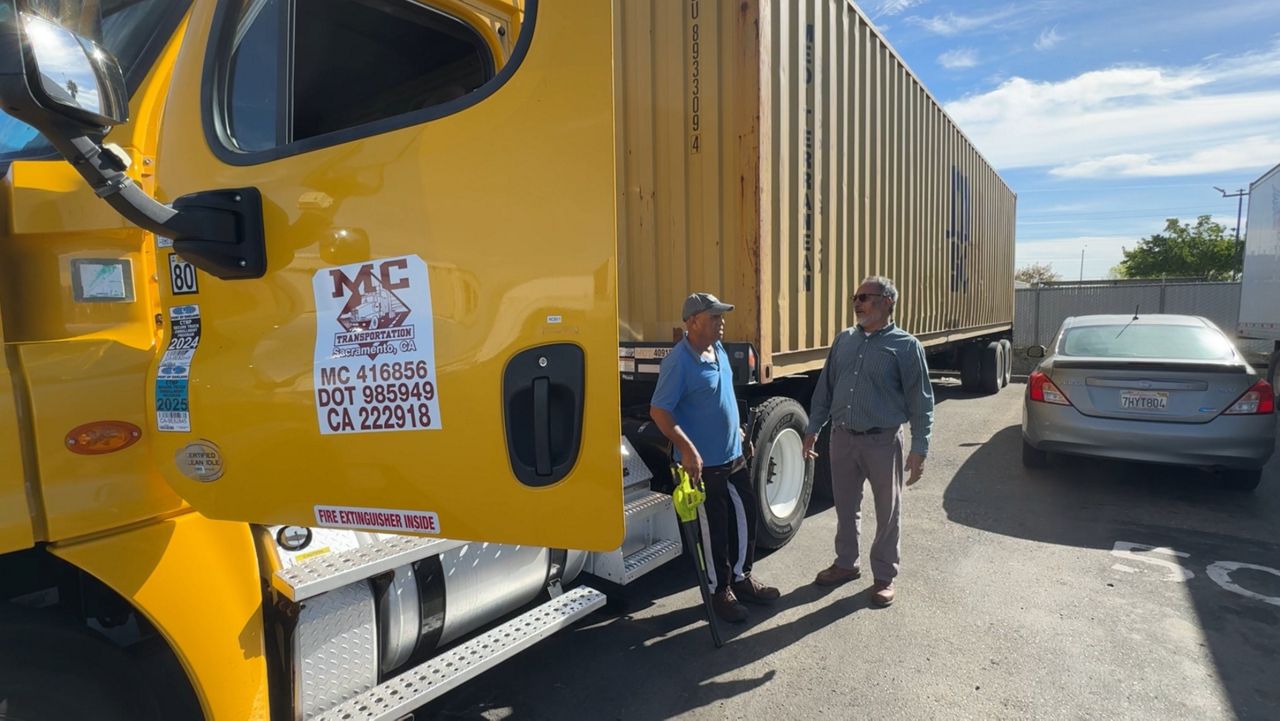SACRAMENTO, Calif. — From quinoa burgers to ice cream sandwiches using oat milk, Gabriel Aiello has made a conscious decision to create a plant-based menu for his customers, including his cheesecake made of cashews.
What You Need To Know
- Gabriel Aiello has made a conscious decision to create a plant-based menu for his customers
- Aiello said a big reason for opening his place is to show people the foods they’re used to having like burgers or sushi can be done with plant-based ingredients easily, and they taste great
- Not only is it about providing animal-free meals, it’s also about sustainability for the planet
- While Aiello said when it comes to the food he serves, he looks to whole ingredients first. He said anything that can help the environment is a positive for the food industry
“It’s more rich, more decadent, more creamy than the cheesecakes they’re used to,” said Aiello, owner of Burley’s, a restaurant and beverage business in Sacramento.
Aiello said a big reason for opening his place is to show people the foods they’re used to having like burgers or sushi can be done with plant-based ingredients easily, and they taste great.
Not only is it about providing animal-free meals, it’s also about sustainability for the planet.
“Even though it’s comfort food, and a lot of it is deep fried, we’re making active decisions about what we’re deep frying in,” Aiello said. “We use sunflower oil. It’s highly sustainable.”
Growing and producing ingredients in a more sustainable and innovative method has taken off in the food industry in a big way.
Just down I-80 from Sacramento in Yolo County at the AgStart incubator work space, Scientific Liaison with company TurtleTree Vanessa Castagna said they have been working on a new way to produce a dairy protein that’s sustainable and animal-free, which can be added to plant-based products called lactoferrin.
“We utilize precision fermentation,” Castagna said. “Which is a technology very similar to brewing beer, to make unique functional proteins, specifically proteins from dairy, without the animal. So, we can produce functional ingredients that can improve the health of everyone in a more sustainable way that moves us away from utilizing the resource-intensive dairy process.”
Much of the world’s lactoferrin is used in baby formula, but is hard to come by as most of the protein is lost from cows’ milk during the heating process of pasteurization.
Castagna said they give the yeast the protein’s genetic code, which then can produce lactoferrin and easily captured.
Besides its use in baby formula, Castagna said it has many other health benefits and is able to be consumed by lactose-intolerant people.
“It really promotes supporting gut health and improving iron regulation,” Castagna said. “Which can really help support athletic performance, cognition, mental acuity.”
The ability to grow a particular protein or ingredient in a more sustainable manner without the need for animals is an interesting concept for Aiello.
“I mean it is interesting and the sustainability factor, the ability to just grow it, you know, is incredible,” he said.
While Aiello said when it comes to the food he serves, he looks to whole ingredients first. He said anything that can help the environment is a positive for the food industry.











